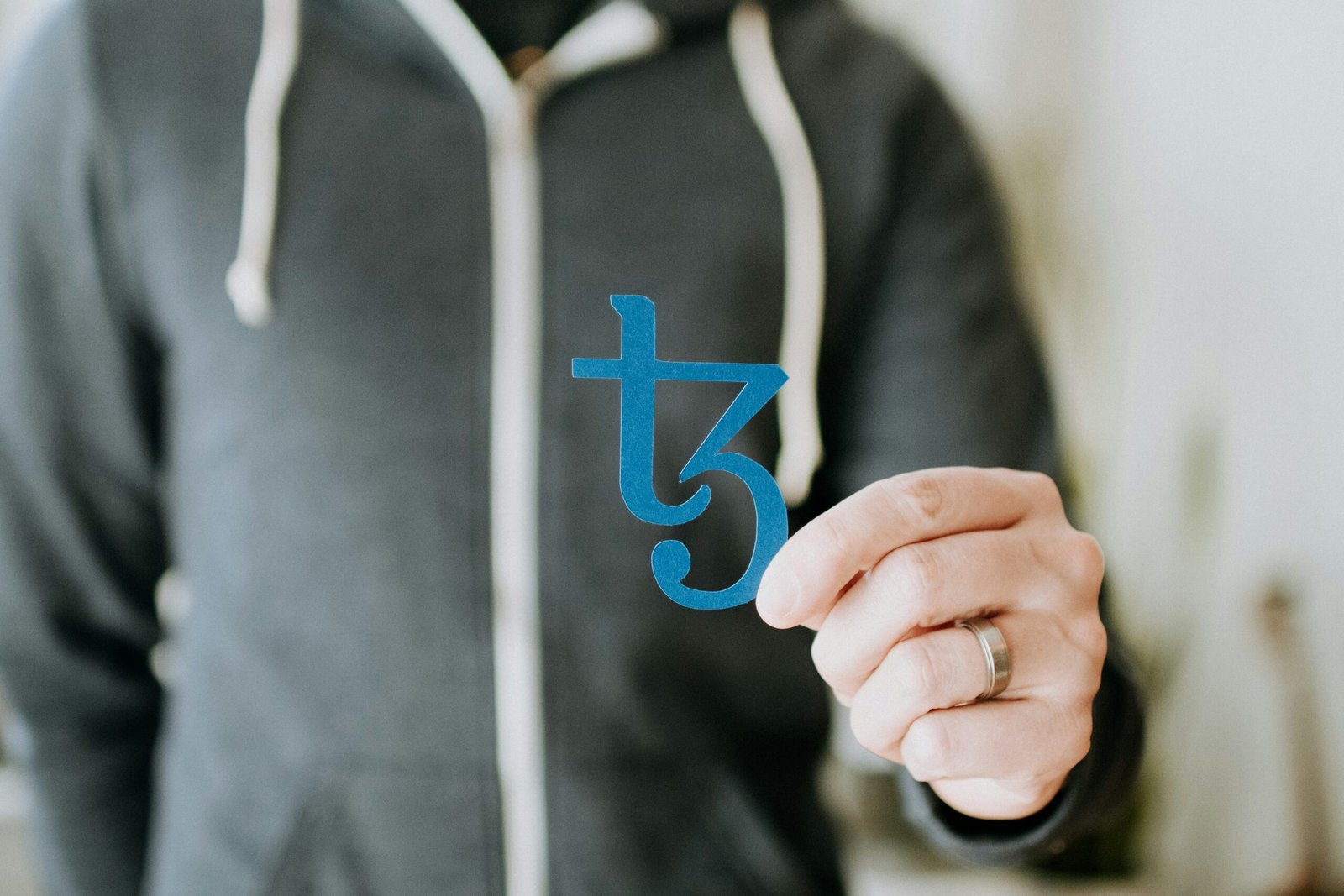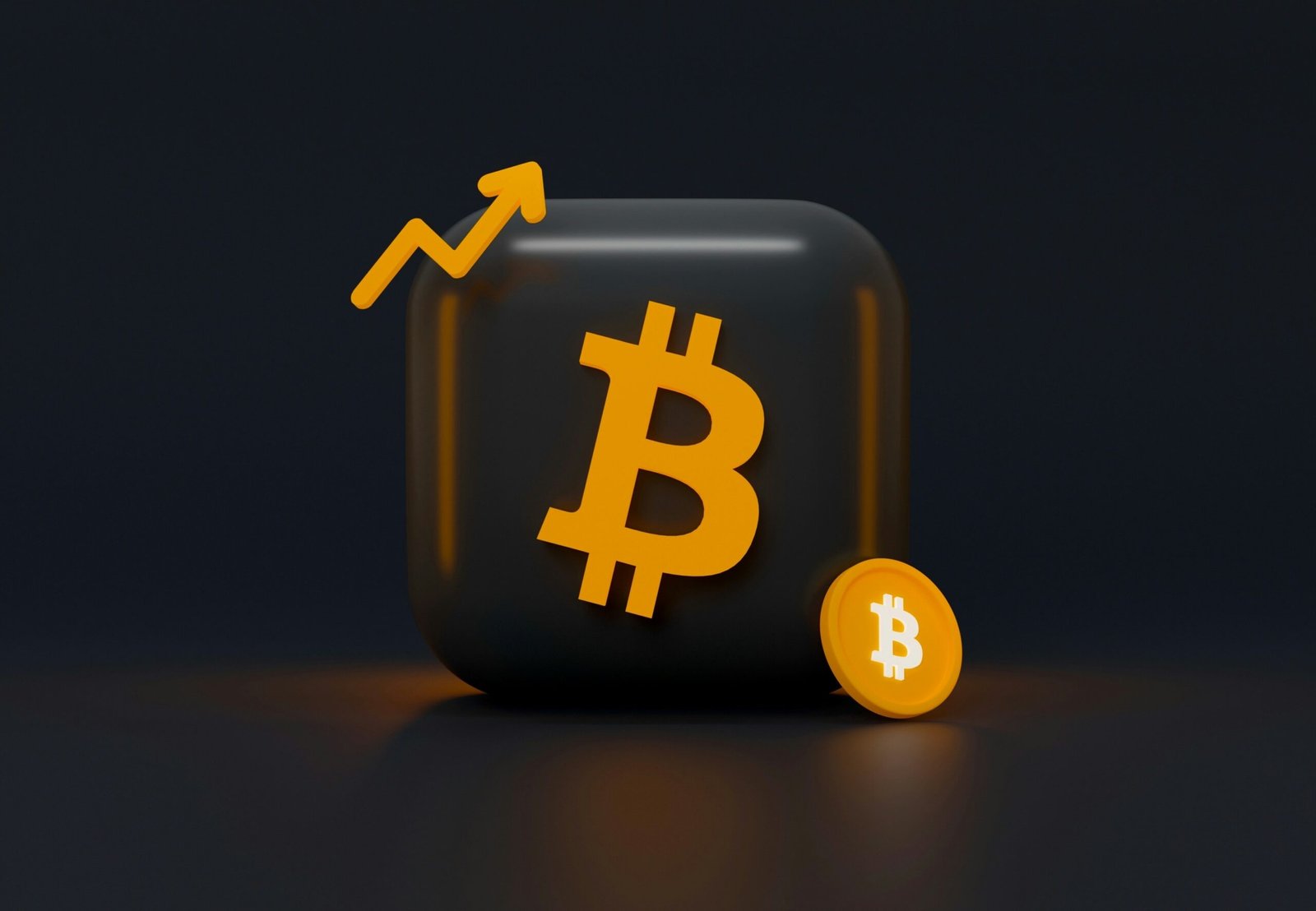Introduction to Decentralized Exchange
Decentralized exchange (DEX) represents a pivotal evolution within the financial landscape, merging the realms of technology and philosophy to redefine how transactions occur in the digital age. Unlike traditional exchanges, which operate on centralized platforms governed by intermediaries, DEX leverages blockchain technology to facilitate peer-to-peer trading. This structure not only enhances transparency but also promotes greater security and user autonomy, eliminating the need for a central authority. As the need for more efficient, trustworthy, and accessible trading systems grows, the significance of decentralized exchanges becomes increasingly apparent.
In exploring the mechanics of DEX, it is essential to consider the underlying principles that drive this innovation. By offering users direct control over their assets, DEX encourages a philosophy rooted in user empowerment and individual liberty. This raises significant questions about trust and governance in the financial system: If users are responsible for their trades, how does this shift our understanding of market dynamics? Furthermore, how does the absence of intermediaries affect liquidity and volatility within the marketplace?
As interest in cryptocurrencies and blockchain technology surges, DEX platforms have emerged as a symbol of resilience against the shortcomings found in traditional finance. These platforms foster greater inclusivity, allowing individuals from diverse backgrounds to participate in the global marketplace without gatekeeping. The DEX model challenges incumbent financial systems, prompting us to question existing norms and consider the future of money and commerce.
This exploration of decentralized exchanges opens doors to rich discourse, as both traders and theorists ponder the implications of such systems on society at large. By delving deeper into the intricacies of DEX, we inch closer to understanding its transformative potential and the philosophy that underpins its existence, marking an essential milestone in the evolution of modern finance.
The Essence of Decentralization
Decentralization refers to the distribution of authority, responsibility, and resources away from a central governing body. This principle stands in stark contrast to traditional centralized systems, where decision-making power is concentrated in a single entity or organization. In decentralized systems, power is dispersed among various participants, allowing for greater participation and adaptability. This shift has significant implications across numerous sectors, particularly in finance, governance, and societal structures.
In the financial domain, decentralized exchanges (DEXs) exemplify the transformative potential of decentralization. Unlike centralized exchanges, which operate under strict regulatory frameworks and hold users’ funds, DEXs allow individuals to trade cryptocurrency directly with one another. This approach reduces the risk of hacking and fraudulent practices, as users retain control over their assets through private wallets. Moreover, DEXs foster a more inclusive trading environment, enabling users from various backgrounds and locations to participate in the global economy without the barriers typically posed by traditional financial institutions.
Furthermore, decentralization impacts governance models by promoting participatory and transparent decision-making processes. In decentralized governance systems, citizens can engage collaboratively through digital platforms, contributing to policies that directly affect their communities. For example, blockchain technology has facilitated decentralized autonomous organizations (DAOs), which operate on predefined protocols and enable members to vote on issues without intermediary interference. This kind of governance allows for greater efficiency and trust among participants, as accountability is similarly distributed.
Societal structures also benefit from decentralization. Grassroots movements and community-led initiatives often thrive when individuals have the autonomy to influence change. The decentralization of information through social media empowers people to share knowledge and ideas, fostering a more informed and engaged citizenry. Such movements underline the essence of decentralization: leveraging distributed power to enhance participation and collaboration, ultimately leading to more resilient and diverse community frameworks.
The Science Behind DEX: How It Works
Decentralized exchanges (DEX) epitomize a significant shift in the financial landscape, leveraging blockchain technology to facilitate peer-to-peer transactions without the need for intermediaries. At the core of DEX lies blockchain, a distributed ledger technology that ensures transparency and security. Each transaction occurring on a DEX is recorded on this immutable ledger, making it nearly impossible to alter or manipulate transaction histories once they have been confirmed.
Blockchain operates on a consensus mechanism, which allows multiple nodes within the network to validate transactions independently. This decentralized validation process reduces the reliance on a central authority, thereby promoting autonomy and creating a trustless environment. As users engage in trading activities, smart contracts come into play. These are self-executing contracts coded on the blockchain that automatically enforce and execute terms agreed upon by the parties involved. Smart contracts eliminate the need for intermediaries by programmatically managing the execution of trades based on pre-defined conditions.
In a typical DEX setup, users maintain control of their private keys, which contrasts sharply with centralized exchanges where users must entrust their assets to a third-party custodian. This custodial model poses certain risks, including vulnerability to hacks and mismanagement of funds. DEX platforms prioritize user sovereignty, as participants retain ownership of their digital assets at all times, enabling a more secure trading environment.
An important aspect of DEXs is their use of liquidity pools. These pools consist of funds contributed by users, allowing traders to exchange assets seamlessly, even in low-volume situations. The pricing of assets in a DEX relies on algorithms that adjust based on supply and demand, ensuring fair trading conditions. Ultimately, the scientific principles governing decentralized exchanges mark a revolutionary step towards a more equitable and accessible financial ecosystem.
Philosophical Perspectives: Autonomy and Control
The emergence of decentralized exchanges (DEX) sparks intriguing philosophical discussions concerning autonomy and control. At the heart of these conversations lies the question of whether DEX genuinely empowers individuals or simply establishes new paradigms of governance. This exploration of autonomy can be viewed through the lens of social contract theory, notably articulated by philosophers such as Thomas Hobbes, John Locke, and Jean-Jacques Rousseau. According to Locke, individuals possess natural rights to life, liberty, and property, concepts that resonate with the principles of DEX, where users maintain control over their assets without centralized interference.
Conversely, Hobbes posits that absolute authority is essential to prevent chaos, a perspective that may lead us to consider whether DEX, in its most anarchic form, might inadvertently generate instability. Trust becomes a pivotal concept, with decentralized frameworks proposing to eliminate the need for centralized trust agents. However, one must ask whether DEX fosters true autonomy or replaces one form of control with another, as Users may still rely on community consensus, or algorithmic governance processes that dictate market behavior and trade execution.
Furthermore, the debate extends to the implications of decentralized governance on user participation. Philosophers like Michel Foucault examine the dynamics of power and control in society, suggesting that even decentralized systems can engender new forms of governance through self-regulation and behavioral norms established by the community. As individuals engage with DEX, they might unwittingly submit to new norms that reflect a different type of control—one that exists in coded agreements and social contracts within the exchange ecosystem.
This philosophical inquiry challenges us to ponder the essence of autonomy within decentralized exchanges. Are we more free in this new realm, or do new systems of governance simply emerge, redefining control and power dynamics? These questions merit ongoing examination as we navigate the complexities of DEX in our modern economic landscape.
Real-World Examples of Decentralized Exchanges
Decentralized exchanges (DEXs) have gained significant traction in the cryptocurrency market, with platforms like Uniswap and PancakeSwap becoming prominent examples of this evolving financial paradigm. These exchanges exemplify the strength of decentralized finance (DeFi) by allowing users to trade cryptocurrencies directly without intermediaries, thereby facilitating peer-to-peer transactions.
Uniswap, one of the earliest and most well-known DEXs, was launched on the Ethereum blockchain. It operates using an automated market-making (AMM) protocol, which allows users to providing liquidity for trading pairs without the need for traditional order books. Users can earn fees by supplying tokens to liquidity pools, thereby engaging in a decentralized and efficient trading mechanism. Uniswap’s unique approach to liquidity provision and trading has not only contributed to its success but also sparked widespread interest in AMM models across the crypto space.
On the other hand, PancakeSwap operates on the Binance Smart Chain (BSC), offering faster transaction times and lower fees compared to Ethereum-based DEXs. PancakeSwap also uses an AMM model and introduces additional features like yield farming and staking, allowing users to earn rewards through various participation methods. These features have contributed to PancakeSwap’s rapid growth, highlighting how DEXs can adapt to the market and provide diverse financial services.
Both platforms, however, are not without their challenges. Issues such as smart contract vulnerabilities, regulatory scrutiny, and market manipulation are prominent concerns that have emerged as DEXs continue to evolve. Despite these obstacles, the innovative nature of Uniswap and PancakeSwap demonstrates the potential of decentralized exchanges to reshape the financial landscape and promote greater access to trading opportunities.
Challenges and Criticisms of DEX
The emergence of decentralized exchanges (DEX) has sparked significant interest in the realm of digital finance, yet it is not without its challenges and criticisms. One of the most pressing concerns involves security vulnerabilities. Unlike centralized exchanges that utilize established security protocols and custodial models, DEX platforms rely on the underlying smart contracts and blockchain technology. While these systems are often lauded for their inherent decentralization, they are not immune to exploits that can result in substantial financial losses. Hackers targeting smart contracts have successfully manipulated vulnerabilities, underscoring the necessity for users to approach DEX with a heightened sense of caution and due diligence.
Moreover, regulatory issues pose a significant barrier to the widespread adoption of decentralized exchanges. Governments worldwide are grappling with how best to regulate cryptocurrencies and the platforms that facilitate their trading. The lack of clear regulatory frameworks can lead to uncertainty for users and operators alike. With many DEX platforms operating outside traditional financial regulations, they can inadvertently expose users to various risks, including fraud and market manipulation. As authorities move towards creating comprehensive regulatory guidelines, the future of DEX remains uncertain, providing further fodder for criticism regarding their long-term viability.
User accessibility also presents a considerable challenge for decentralized exchanges. While DEX platforms often promote themselves as inclusive alternatives to their centralized counterparts, the reality can be quite complex. Many users may find the technical nuances of navigating decentralized trading platforms overwhelming, particularly those who lack familiarity with cryptocurrency ecosystems. This steep learning curve could alienate potential users who are more accustomed to the user-friendly interfaces of centralized exchanges. Addressing these usability concerns is crucial for the growth and acceptance of DEX in the evolving digital economy, ensuring that all individuals have equal access to participate in this transformative financial landscape.
The Future of Decentralized Exchanges
The future of decentralized exchanges (DEX) is poised for significant transformation, driven by advances in technology and evolving societal perspectives on finance. As the digital economy continues to expand, decentralized exchanges are gaining traction as alternatives to traditional trading platforms. One of the most notable trends influencing DEX development is the growth of blockchain technology. This foundational technology provides the infrastructure for creating secure, peer-to-peer transactions, eliminating the need for intermediaries. As various sectors harness the potential of blockchain, its integration into everyday financial transactions is expected to streamline processes, enhance security, and reduce costs.
Furthermore, the emergence of innovative protocols and smart contracts is set to transform how trades are executed. These technologies can facilitate autonomous trading systems, enabling greater efficiency and transparency. With the enhancements in scalability and interoperability amongst different blockchain networks, users may find it increasingly convenient to transact across multiple DEX platforms. This cross-chain functionality could open new avenues for liquidity and broaden market access, ultimately benefiting users by providing them with a wider array of trading opportunities.
Societal shifts also play a crucial role in shaping the future of decentralized exchanges. As individuals become more aware of the vulnerabilities and drawbacks associated with traditional financial systems, such as centralized control and privacy concerns, there is a growing appetite for alternatives that promote financial independence and sovereignty. Educational initiatives aimed at informing users about DEX and their benefits could further catalyze this movement toward decentralization. Moreover, the acceptance of cryptocurrencies and digital assets by mainstream financial institutions signals a potential convergence between traditional finance and DEX platforms, which could redefine how people engage with financial markets in their daily lives.
In conclusion, as we explore the intersection of technology, philosophy, and finance, it becomes clear that decentralized exchanges will continue to evolve, with the potential to reshape not only trading practices but wider financial systems and societal interactions with money.
Integrating DEX with Other Technologies
The evolution of decentralized exchanges (DEX) represents a significant shift in the landscape of digital trading platforms. As new technologies emerge, the integration of DEX with other advanced systems, such as artificial intelligence (AI), the Internet of Things (IoT), and big data, promises to enhance their functionality and overall user experience. This synergy can lead to innovative solutions and transformative scenarios for the cryptocurrency market.
Artificial intelligence can play a crucial role in optimizing trading strategies within DEX frameworks. By employing machine learning algorithms, DEX platforms can analyze vast amounts of trading data in real time, allowing them to predict market trends more accurately. Moreover, AI-driven analytics can assist traders in making informed decisions by providing tailored insights that cater to individual trading preferences and risk tolerances.
Integrating IoT with decentralized exchanges can further streamline trading processes. For instance, IoT devices can facilitate automated trading by enabling users to set specific conditions under which trades should be executed. This can enhance the efficiency of transactions and reduce the time spent on manual oversight. Furthermore, IoT technologies can support the collection of real-time data, which can be crucial for understanding market dynamics and user behaviors, ultimately leading to a more responsive DEX ecosystem.
Big data is another essential component that can significantly augment the capabilities of DEX platforms. By harnessing the power of big data analytics, exchanges can gather insights from various data sources, including social media sentiment and transaction records. This information can be instrumental in enhancing liquidity, improving user experiences, and ultimately fostering greater trust in decentralized platforms. The amalgamation of DEX with artificial intelligence, IoT, and big data not only boosts functionality but also positions these exchanges as vital players in the broader financial ecosystem.
Conclusion: Reflecting on Decentralized Exchange
In exploring the concept of decentralized exchanges (DEX), we have traversed a fascinating landscape that intertwines finance and philosophical inquiry. Decentralized exchanges represent a significant evolution in trading systems, prioritizing user autonomy and reducing reliance on central authorities. This shift towards decentralization challenges traditional finance paradigms and encourages a re-examination of trust, exchange, and personal agency in economic interactions.
The decentralized exchange model not only facilitates peer-to-peer transactions but also poses questions regarding the future structure of our financial systems. By eliminating intermediaries, DEX promotes transparency and efficiency, thereby appealing to the ever-growing demand for privacy and security in transactions. However, it also necessitates a level of user understanding and responsibility that underscores the philosophical implications of such systems. The question arises: how prepared are individuals to navigate a landscape that places the onus of responsibility squarely on them?
Furthermore, the emergence of DEX as a crucial player in contemporary finance piques curiosity about its broader societal impact. As we witness a shift towards platforms that favor decentralized governance and community-driven decision-making, we are also compelled to reflect upon their implications for economic equality and access. Are decentralized exchanges paving the way for a more equitable financial system, or do they risk perpetuating existing disparities?
As we conclude our exploration, we invite readers to reflect on these open-ended questions. Decentralized exchanges are not merely technological instruments; they represent a philosophical inquiry into autonomy and societal structures. How might this evolving paradigm affect your perspective on finance and personal agency? The journey of understanding decentralized exchanges continues, urging us to engage with both the scientific advancements and the philosophical implications they inspire.
SEO Optimization: Keywords and Meta Description
To ensure effective visibility and searchability of this blog post on decentralized exchanges, a comprehensive keyword strategy is essential. The primary focus keyword throughout the article is “decentralized exchange,” which captures the core subject matter. In addition, synonyms and related terms such as “peer-to-peer trading,” “blockchain exchange,” and “crypto exchange” have been naturally integrated within the text to enhance relevance without overstuffing. This diversity in terminology not only aids in addressing different search intents but also aligns with the overarching theme of the intersection between science and philosophy.
For optimal search engine performance, several additional keywords can be considered for tracking, including “decentralized finance,” “DApps,” and “financial philosophy.” Each of these terms contributes to a nuanced understanding of the broader context in which decentralized exchanges operate, emphasizing their significance in contemporary financial discussions. It is important to maintain a balance and ensure that these keywords flow seamlessly within the content.
Moreover, a compelling meta description will reinforce the article’s focus and encourage click-through rates. An example of an engaging meta description would be: “Discover the intersection of science and philosophy within decentralized exchanges. Explore their impact on the evolving landscape of finance and their potential to redefine trading practices.” This description succinctly conveys the article’s content while inviting readers to delve into the complexities of the topic.
When incorporating images to complement the blog post, appropriate alt text is crucial for both accessibility and SEO. Each image should be described using concise, descriptive phrases that include relevant keywords. Additionally, it is recommended that image file names reflect the content of the images, ideally incorporating the focus keyword. This will further bolster the blog’s overall SEO strategy, enhancing visibility and engagement.






